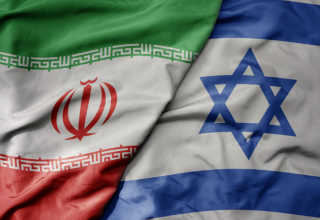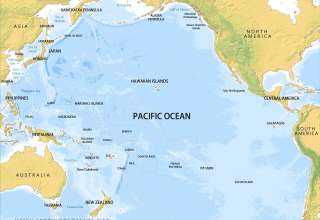by Bevan Ramsden
The Afghanistan war disaster raises questions about the ANZUS treaty and what we were really fighting for.
 The Afghanistan war was an unmitigated disaster, costly to the people of Afghanistan in lives lost and civil infrastructure destroyed. Australia’s involvement in this disaster was “justified “by invoking the ANZUS treaty. This alliance has drawn Australia into the Vietnam war, the Iraq war, the war in Syria and the Afghanistan war. Australia was not threated in any way by these countries. Isn’t it time to question whether this U.S. alliance is necessary for our peace and security or is it in fact working against it?
The Afghanistan war was an unmitigated disaster, costly to the people of Afghanistan in lives lost and civil infrastructure destroyed. Australia’s involvement in this disaster was “justified “by invoking the ANZUS treaty. This alliance has drawn Australia into the Vietnam war, the Iraq war, the war in Syria and the Afghanistan war. Australia was not threated in any way by these countries. Isn’t it time to question whether this U.S. alliance is necessary for our peace and security or is it in fact working against it?
The 20 year war on Afghanistan by the U.S and its allies including Australia is now widely seen as an unmitigated disaster involving terrible suffering for the people of Afghanistan, massive loss of life and destruction of civil infrastructure. The invasion of Afghanistan was commenced on the basis of lies and has ended in massive defeat for the U.S and its allies. Surely it is time we examined the lessons arising from this war and Australia’s part in it.
Australia’s participation in the illegal and criminal Afghanistan war resulted in the deaths of 41 ADF personnel, with 261 wounded. The ABC News reported on December 6th 2020 that since the start of the Afghanistan war, at least 500 ADF veterans have committed suicide, a death toll that dwarfs the losses due to combat operations. Another shameful aspect is the atrocious behaviour of some Australian Special Air Service personnel in Afghanistan, as revealed by the Brereton Report.
John Howard was the Prime Minister who got us into the Afghanistan War. Recently, on the ABC 7:30 Report, we watched him try to justify Australia’s involvement by saying that it had prevented more 9/11-style terrorist attacks and claiming that, quote, “our soldiers have not died in vain”. However, the facts show that, while Western, mainly U.S, arms manufacturers and military contractors have made huge profits, the people of Afghanistan have endured nothing but death and torment. There is an urgent need to determine who was responsible for sending Australian forces into Afghanistan in 2001 and on what basis.
The Howard Government invoked the ANZUS Treaty to justify Australia’s involvement in the invasion of Afghanistan, a war not sanctioned by the United Nations and therefore illegal under international law. Whilst the U.S government and media repeatedly sought to link the Taliban with the 9/11 attacks, even the CIA has admitted that there is no connection. The Taliban agreed to hand over Osama Bin Laden if the U.S. could produce proof that he was behind the 9/11 attacks, and even though the U.S didn’t or couldn’t provide that evidence, the invasion went ahead anyway using vengeance for 9/11 and the elimination of its alleged perpetrators as the pretext.
Another possible reason for invading Afghanistan was oil. Interventionist wars by the U.S and its allies to secure access to energy resources has been a recurring theme over the past few decades. The 2011 U.S-NATO dismemberment of Libya and the murder of its President Muammar Gadaffi had access to Libyan oil as one of its motivations. Colonel Gadaffi’s government had nationalised Libya’s oil resources, thus shutting out Western energy corporations and allowing Libya’s oil wealth to be used for the social and economic benefit of the Libyan people. After the destruction of Gadaffi and his government, the previously nationalised industry has been opened up to foreign exploitation again and Libya has been plunged into chaos.
A similar narrative applies to Iraq. A CNN article by Antonia Juhasz, published in 2013 but still applicable today, states: “Before the 2003 invasion, Iraq’s domestic oil industry was fully nationalized and closed to Western oil companies. A decade of war later, it is largely privatized and utterly dominated by foreign firms.
From ExxonMobil and Chevron to BP and Shell, the West’s largest oil companies have set up shop in Iraq. So have a slew of American oil service companies, including Halliburton, the Texas-based firm Dick Cheney ran before becoming George W. Bush’s running mate in 2000.” The article goes on to say: “Oil was not the only goal of the Iraq War, but it was certainly the central one, as top U.S. military and political figures have attested to in the years following the invasion.
“Of course it’s about oil; we can’t really deny that,” said Gen. John Abizaid, former head of U.S. Central Command and Military Operations in Iraq, in 2007. Former Federal Reserve Chairman Alan Greenspan agreed, writing in his memoir, “I am saddened that it is politically inconvenient to acknowledge what everyone knows: the Iraq war is largely about oil.” The CNN report concludes by quoting U.S Senator and later Defence Secretary Chuck Hagel, who said in 2007: “People say we’re not fighting for oil. Of course we are.”
There is substantial evidence that the Taliban’s refusal to allow the U.S transnational energy corporation Unocal to build oil and gas pipelines across Afghanistan was another underlying reason for the invasion. Unocal had feted Taliban leaders in Texas in the late 1990’s but were not successful in gaining their support for pipelines to carry oil and gas from energy rich Turkmenistan through Afghanistan to seaports in Pakistan and India. The last meeting between the U.S and the Taliban was held in Berlin in 2001, with former U.S ambassador to Pakistan Tom Simons representing the U.S. Niaz Naik, former Pakistani Foreign Minister, recalls Simons saying that: “if the Taliban wouldn’t agree with the plan, and if Pakistan was unable to persuade them, the United States might use an overt action against Afghanistan”. Niaz Naik says that Simons used the words “a military operation”. Another participant in this meeting reportedly said that the U.S gave the Taliban a choice: either accept a “carpet of gold” in wealth from the pipeline or “a carpet of bombs”. The Taliban didn’t agree and the military invasion of Afghanistan commenced shortly after.
What motivated Australia’s political leadership to join the U.S in the war on Afghanistan? This is the vital question. Australia was not under any military threat from Afghanistan or the Taliban. Why were ADF personnel sent there and the commitment maintained for 20 years by both the Coalition and the ALP? Prime Ministers Howard, Rudd, Gillard, Abbott, Turnbull and Morrison and their governments must all share responsibility for Australia’s involvement in this illegal, criminal colonial war.
Should we place the blame on the ANZUS Treaty, which underpins the U.S-Australia military alliance, for driving Australia into following the U.S into Afghanistan as well as their aggressive wars in Vietnam, Iraq and Syria with a perceived need to pay an “insurance premium” to the U.S in return for its’ military protection.
A media release by the Independent and Peaceful Australia Network on 18th August, 2021 stating its concern for the chaos and dangers faced by Afghan citizens attempting leave the country said: “While Australia cannot undo the 20 years of war it was a part of, it can and should immediately increase and expedite its humanitarian visa intake to the tens of thousands of people fleeing the country. Furthermore it stated: “It is time our political leaders learned the lessons of history. It is time to re-examine the ANZUS Treaty that drew us into this (Afghanistan) war. We must evaluate the costs and consequences of this alliance and question whether its continuance is in the best interests of security and peace for the Australian people.”
Submissions can be made to the IPAN Inquiry into the costs and consequences of the U.S. alliance at www.independentpeacefulaustralia.com.au





